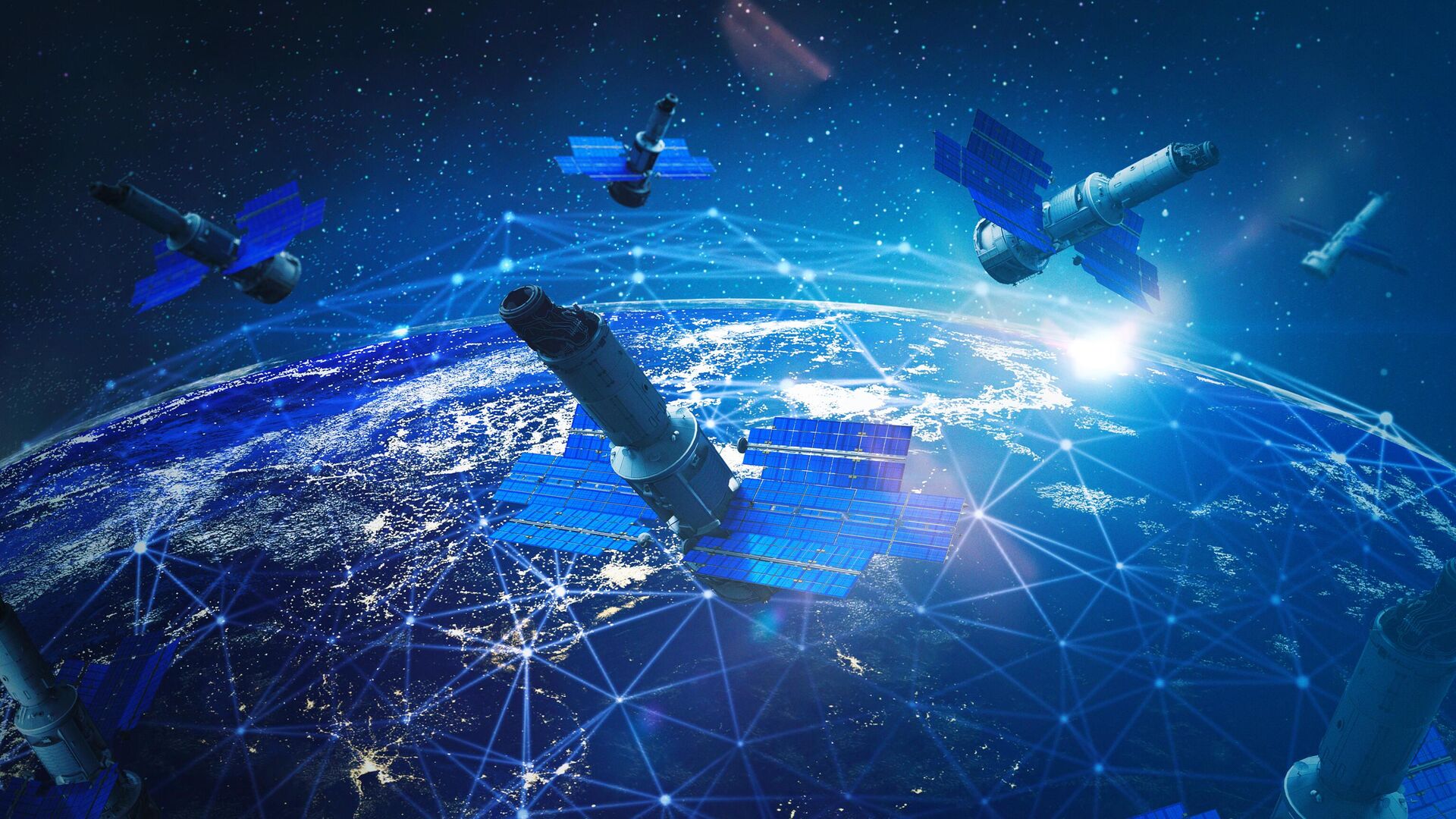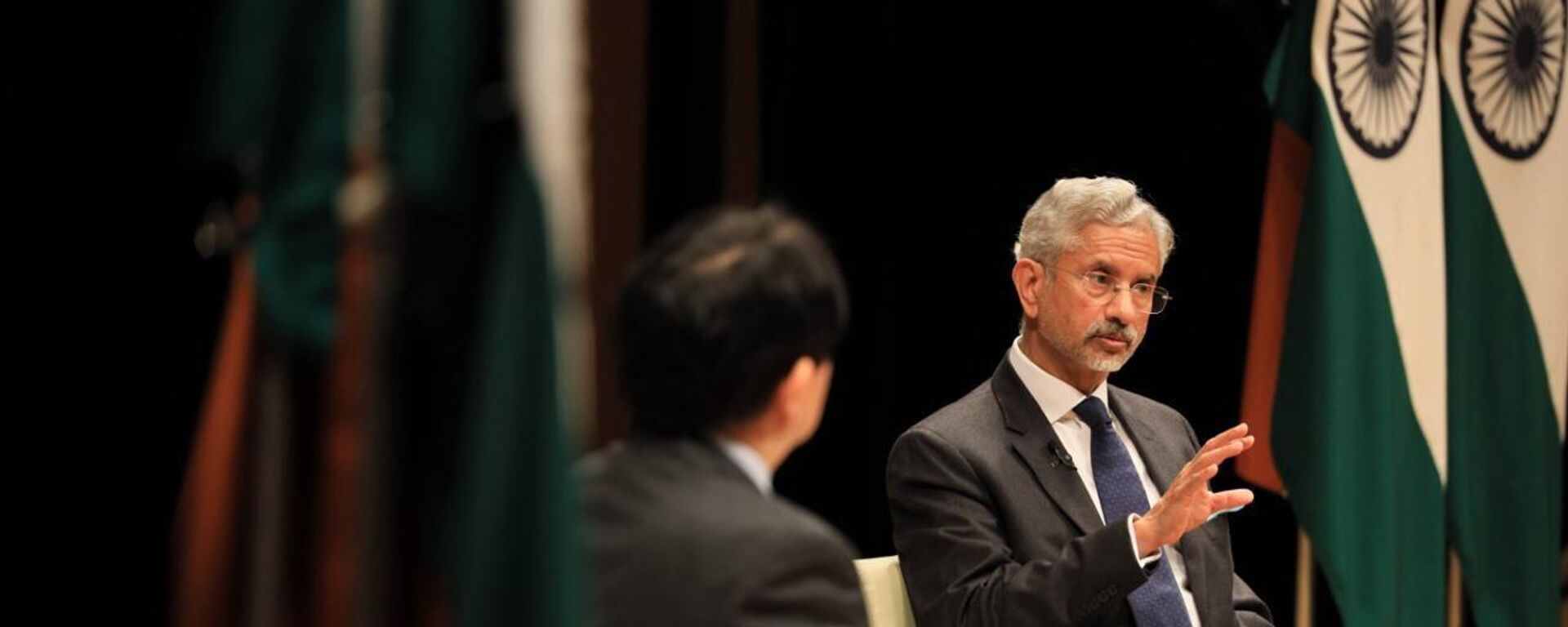https://sputniknews.in/20241223/indian-military-set-for-generational-leap-with-space-based-surveillance-ai-boost-8589682.html
India Poised to Obtain Air and Space Force
India Poised to Obtain Air and Space Force
Sputnik India
The Indian government has approved over 50 satellites to boost Space-Based Surveillance (SBS) capabilities. Sputnik India explores how these satellites and AI... 23.12.2024, Sputnik India
2024-12-23T20:32+0530
2024-12-23T20:32+0530
2024-12-23T20:35+0530
sputnik opinion
india
government of india
indian space research organisation (isro) i
drdo
space satellite
militarization of space
space rocket
surveillance
artificial intelligence (ai)
https://cdn1.img.sputniknews.in/img/07e8/0c/17/8590884_0:26:3072:1754_1920x0_80_0_0_ed8d9426c5607a89c235d6dccedbaa2d.jpg
India's move to enhance its space assets is in line with the nation's impetus on bolstering its future warfare capabilities, experts have said.India has its own GPS systems – GAGAN and NAVIK – and excellent remote sensing capabilities, professor Mayank Vahia, a retired space scientist from the Tata Institute of Fundamental Research (TIFR), noted.Through Space Based Surveillance (SBS), India will be able to monitor land and sea areas in real-time, enhancing border security and oversight of critical locations, Bengaluru-based space analyst Girish Linganna emphasised.Improved communication will ensure secure and reliable channels for military activities, while the capability to detect and track enemy submarines and other suspicious activities will strengthen India's defence, he told Sputnik India. Besides, AI will encourage innovation in military technology, giving soldiers advanced tools to deter or win conflicts. Satellites equipped with AI can be reprogrammed quickly to adapt to new threats and changing needs. This flexibility will help India become more self-reliant, improving its ability to detect and respond to threats without depending on outside systems he noted. Improved surveillance, communication, and decision-making will provide India with a strategic advantage in modern warfare, ensuring it is ready to tackle new challenges. The use of AI will not only make operations more efficient but also drive technological advancements, positioning India as a strong player in defence and military technology, the analyst stressed. However, this move does not indicate that India has any aggressive design, Rajiv Nayan, the Secretary-General of the Indian Association of International Studies, told Sputnik India. This also has an element of emerging technology, with Space touted as having new technological capabilities, he added.Furthermore, the transition of the Indian Air Force into the Air and Space Force (IASF) is inevitable. After all, India is among a rare group of nations that have demonstrated the ability to destroy satellites, he highlighted.This change aims to enhance its abilities in the aerospace field and make better use of both air and space in military operations. As space becomes more crucial in modern warfare, the IAF is focusing on using it for intelligence, surveillance, communication, and navigation — key areas for maintaining an advantage, Linganna reckoned in turn.Additionally, the IAF is collaborating with organisations like ISRO and DRDO to develop advanced space technologies, including improvements in navigation, space weather prediction, and traffic management in space. The goal is to have over 100 military satellites in the next seven to eight years, significantly boosting its capabilities, the military and space commentator expressed.
https://sputniknews.in/20241222/jaishankar-affirms-indias-focus-on-national-interests-8587441.html
india
Sputnik India
feedback.hindi@sputniknews.com
+74956456601
MIA „Rossiya Segodnya“
2024
Pawan Atri
https://cdn1.img.sputniknews.in/img/07e6/0c/13/139630_147:0:831:684_100x100_80_0_0_8fa2b25903e7787fe6a2698552c167df.png
Pawan Atri
https://cdn1.img.sputniknews.in/img/07e6/0c/13/139630_147:0:831:684_100x100_80_0_0_8fa2b25903e7787fe6a2698552c167df.png
News
en_IN
Sputnik India
feedback.hindi@sputniknews.com
+74956456601
MIA „Rossiya Segodnya“
Sputnik India
feedback.hindi@sputniknews.com
+74956456601
MIA „Rossiya Segodnya“
Pawan Atri
https://cdn1.img.sputniknews.in/img/07e6/0c/13/139630_147:0:831:684_100x100_80_0_0_8fa2b25903e7787fe6a2698552c167df.png
india, government of india, indian space research organisation (isro) i, drdo, space satellite, militarization of space, space rocket, surveillance, artificial intelligence (ai), indian air force (iaf)
india, government of india, indian space research organisation (isro) i, drdo, space satellite, militarization of space, space rocket, surveillance, artificial intelligence (ai), indian air force (iaf)
India Poised to Obtain Air and Space Force
20:32 23.12.2024 (Updated: 20:35 23.12.2024) The Indian government has approved over 50 satellites to boost Space-Based Surveillance (SBS) capabilities. Sputnik India explores how these satellites and AI integration will strengthen India's future warfare potential.
India's move to enhance its space assets is in line with the nation's impetus on bolstering its future warfare capabilities, experts have said.
India has its own GPS systems – GAGAN and NAVIK – and excellent remote sensing capabilities, professor Mayank Vahia, a retired space scientist from the Tata Institute of Fundamental Research (TIFR), noted.
"These give fairly good information on what is happening in the subcontinent. But we live in a dangerous world so the next natural ambition is to have global surveillance capabilities. Add to that India's strength in AI and a new generation of private space launchers coming up, India is upgrading its ambition," Vahia told Sputnik India.
Through
Space Based Surveillance (SBS), India will be able to monitor land and sea areas in real-time, enhancing border security and oversight of critical locations, Bengaluru-based space analyst
Girish Linganna emphasised.
Improved communication will ensure secure and reliable channels for military activities, while the capability to detect and track enemy submarines and
other suspicious activities will strengthen India's defence, he told
Sputnik India.
"Integrating artificial intelligence [AI] with these satellites will greatly enhance their efficiency. AI technology will allow the satellites to operate on their own, minimising the need for constant human input and enabling quicker and better data collection. This will lead to faster, more accurate decision-making in military situations, giving India a crucial advantage. AI will also simplify operations by managing data smartly, making it easier for ground teams to handle information and providing them with useful insights," Linganna underscored.
Besides, AI will encourage innovation in military technology, giving soldiers advanced tools to deter or win conflicts. Satellites equipped with AI can be reprogrammed quickly to adapt to new threats and changing needs. This flexibility will help India become more self-reliant, improving its ability to detect and respond to threats without
depending on outside systems he noted.
Improved surveillance, communication, and decision-making will provide India with a strategic advantage in modern warfare, ensuring it is ready to tackle new challenges. The use of AI will not only make operations more efficient but also drive technological advancements, positioning India as a strong player in defence and military technology, the analyst stressed.
However, this move does not indicate that India has any aggressive design,
Rajiv Nayan, the Secretary-General of the Indian Association of International Studies, told
Sputnik India. This also has an element of emerging technology, with Space touted as having new technological capabilities, he added.
"India tested ASAT in 2019 after considerable restraints for not years but decades. At the same time, India needs to keep its agencies and forces prepared for any event with the military domain evolving at a fast pace," Nayan stated.
Furthermore, the transition of the
Indian Air Force into the
Air and Space Force (IASF) is inevitable. After all, India is among a rare group of nations that have demonstrated the ability to destroy satellites, he highlighted.
This change aims to enhance its abilities in the aerospace field and make better use of both air and space in military operations. As space becomes more crucial
in modern warfare, the IAF is focusing on using it for intelligence, surveillance, communication, and navigation — key areas for maintaining an advantage, Linganna reckoned in turn.
Additionally, the IAF is collaborating with organisations like ISRO and DRDO to develop advanced space technologies, including improvements in navigation, space weather prediction, and traffic management in space. The goal is to have over 100 military satellites in the next seven to eight years, significantly boosting its capabilities, the military and space commentator expressed.
"The Defence Space Agency, created in 2019, will evolve into a full-fledged Space Command, further strengthening India's space capabilities. This will enhance its surveillance, communication, and decision-making processes, ensuring that it stays at the forefront of technological advancements and is ready to face future challenges in warfare," Linganna concluded.



